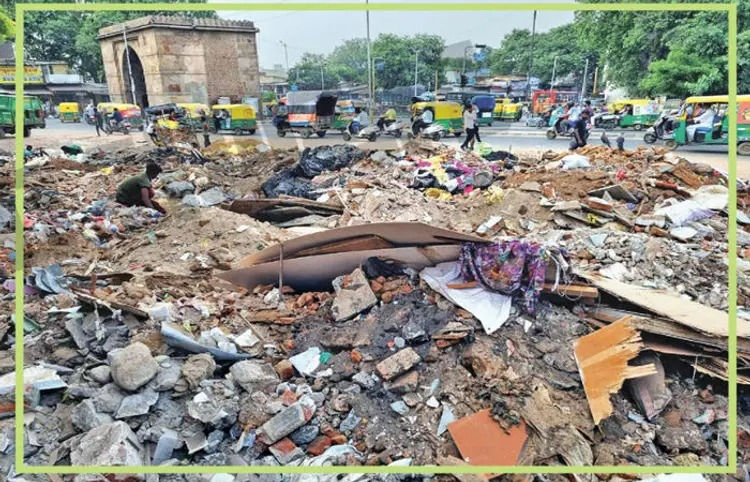After being named India’s first World Heritage City by UNESCO, Ahmedabad has now been declared the ‘Cleanest Big City’ in the Swachh Survekshan 2024–25 rankings.
While the city celebrates this achievement in the category of cities with a population of over 10 lakh, many roads and heritage sites still need proper cleaning.
According to a media report, Ahmedabad still has a long way to go to become truly clean. Ongoing roadwork, pipeline and power line installations, and construction projects often leave behind waste, which becomes a breeding ground for mosquitoes and insects.
For example, near the historic Prem Darwaza in the old city, garbage piles with bad smells are still visible. Compared to Indore, which has held the cleanest city title for eight years in a row, Ahmedabad needs more effort from both the civic authorities and its residents to keep the city clean and live up to its new title.
Historic sites like Ahmad Shah’s Tomb, Jama Masjid, and Sarkhej Roza are surrounded by plastic litter and trash, taking away from their beauty and cultural importance.
Gujarat must take inspiration from Indore
Moreover, only 26 out of 162 municipalities in Gujarat are garbage-free as per the report.
In Swachh Survekshan 2024–25, 17 municipal corporations and 145 municipalities from Gujarat participated. The ranking was based on a total of 12,500 marks.
Out of this, 10,000 marks were allocated for parameters like cleanliness, garbage segregation, collection, transportation, solid waste management, toilet maintenance, used water management, and citizen feedback. The remaining 2,500 marks were allotted to Garbage-Free City certification (1,300 marks) and Open Defecation Free certification (1,200 marks).
Across the country, Gujarat scored an average of 8,178 out of 12,500 marks. In the Garbage-Free City certification, Ahmedabad and Surat received a 7-star rating. Vadodara, Rajkot, Gandhinagar, Bhavnagar, and Vapi received a 3-star rating, while 19 municipal corporations and municipalities received a 1-star rating. All 162 municipal corporations and municipalities in Gujarat received the Open Defecation Free certification.
Notably, Indore has continued to hold the title of the country’s cleanest city for the eighth year in a row. There is growing discussion around the idea that instead of international study tours in the name of learning, municipal officials would benefit more by visiting neighbouring Indore.
What’s Indore’s secret?
- Green waste processing to produce both compost and biofuel. energy. Five plants are set up to convert green waste into compost.
- Steps toward achieving zero-landfill status. The remaining 5% non-recyclable waste is layered and buried underground.
- Every ward has “Three R” centres—Reuse, Recycle, Reduce—for processing old clothes, shoes, etc.
- Treatment and reuse of grey water from kitchens and bathrooms.
- Indore is home to Asia’s largest CNG plant.
- Since 2016, public participation in cleanliness initiatives has increased. Public toilets and dustbins are consistently found at short intervals throughout the city.



